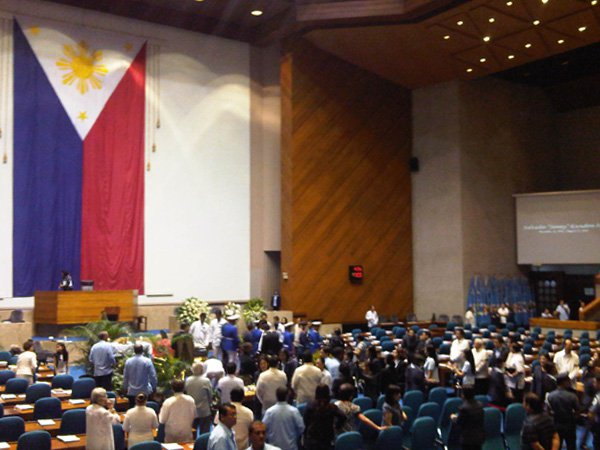House majority to hold caucus on death penalty bill
The House of Representatives majority is set to hold a caucus on Monday (Feb. 20) to discuss whether or not to continue with the period of interpellation, a week after Majority Floor Leader Rodolfo Fariñas slammed opponents of the bill for using the quorum issue as a delaying tactic.
The revival of the death penalty is a priority legislative measure of President Rodrigo Duterte, who believes that capital punishment would curb what he claims is a worsening nationwide drug problem.
At first, House leaders said that they would want the bill passed by mid-March.
House Deputy Speaker Fredenil Castro told the Inquirer he felt the interpellation would still continue because majority would like to give everyone sufficient opportunity to clarify all issues.
He warned, however, that this could change if “this opportunity is clearly abused, or waived expressly or impliedly by acts or omissions… (where) the intention to procrastinate the proceeding is manifest.”
Article continues after this advertisementHouse Minority Floor Leader Lito Atienza vowed that he and other lawmakers opposed to reimposing the death penalty would keep on asserting themselves.
Article continues after this advertisement“If they (majority) break the rules, they will be answerable to the people,” Atienza said. “The people will not agree to railroading the bill. The (majority) wants it at all cost.”
Ironically, Atienza pointed out, the Senate was even cool to the death penalty bill.
Even if the House should pass the bill, it would be archived if the Senate would not act on it, Atienza said.
On Sunday, lawmakers opposing the revival of the death penalty defended their constant checking of quorum at their plenary debates at the House, saying not only was it part of the rules but also a way to allow undecided colleagues to “weigh things on this extraordinary measure.”
“A quorum is basic parliamentary requirement to transact business,” Akbayan Rep. Tom Villarin, an opposition lawmaker, told Inquirer.
“It is the duty of the majority to ensure attendance in deliberations as new inputs and perspectives are tackled,” he added. “Many legislators are still in doubt and the plenary debates are important for us to weigh things on this extraordinary measure.”
Atienza said Congress is “ruled by a set of rules and the calling of the roll is basic.”
He said the lack of quorum means Congress is not in session.
“If we ask for a roll call, that is in accordance to the rules,” Atienza said. /SFM/ATM
